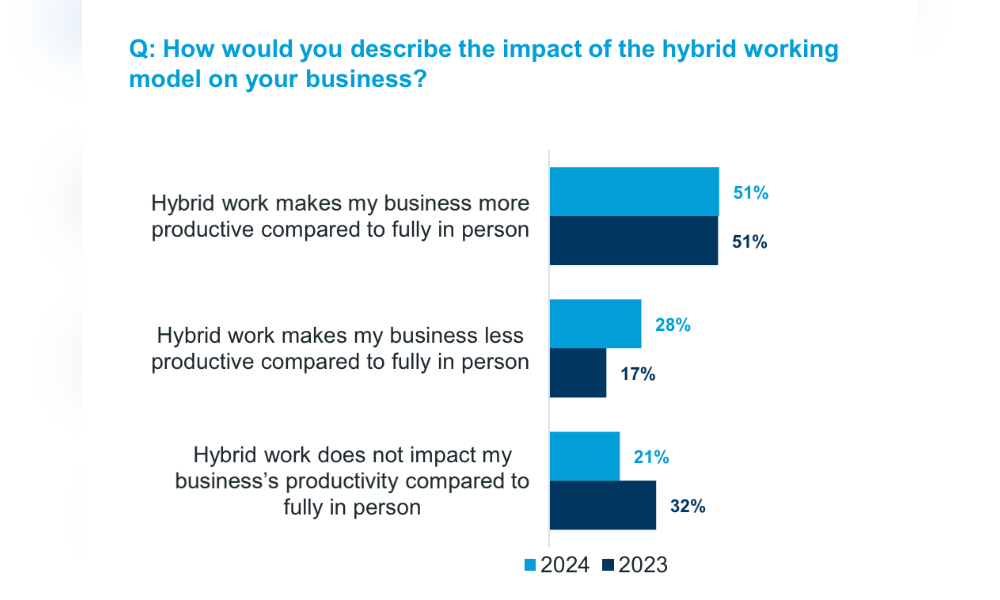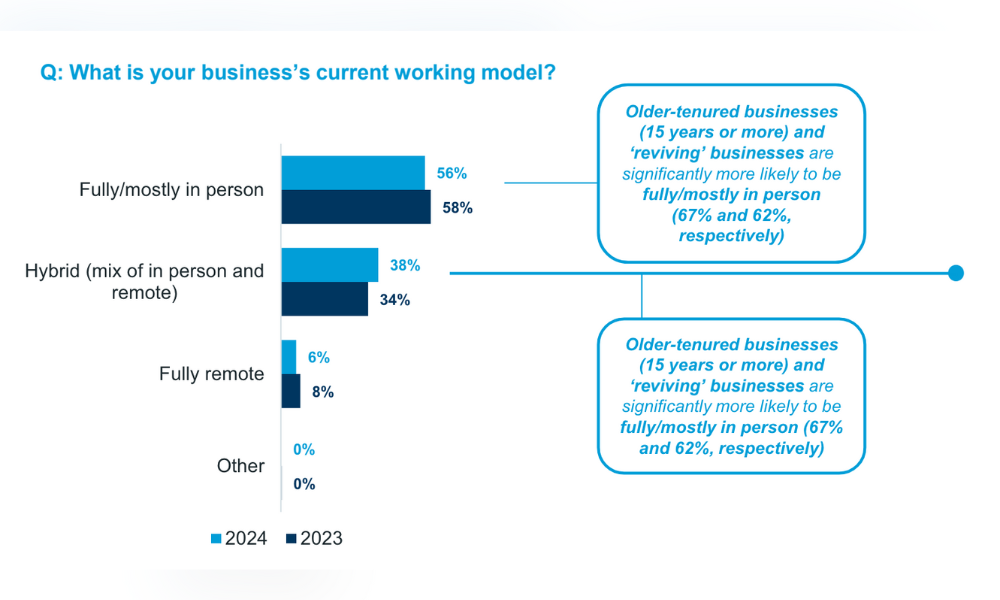
But majority still say hybrid work boosts productivity, and flexible work attracts, retains employees

More than a quarter of organisations in New Zealand that are implementing hybrid work say it made their business less productive compared to in-person arrangements, according to a new report.
The Shaping Business Study released by 2Degrees revealed that hybrid work made 28% of organisations implementing it less productive, much higher than the 17% reported a year ago.
But the percentage of employers reporting that hybrid work made them more productive than fully in person remained consistent at 51%.

Source: 2Degrees
The findings come as the percentage of employers implementing hybrid work increased to 38% in 2024, up from 34% in 2023.
Nearly four in 10 employers (39%) implementing hybrid work said they decreased the amount of in-office time for employees, while 17% said they increased it.
Meanwhile, fully or mostly in-person arrangements also saw a decline from 58% to 56% in 2024, as well as fully remote arrangements that dipped to six per cent, according to the report.

Source: 2Degrees
Despite reporting less productivity, more than a third (37%) of employers are still introducing flexible work to attract and retain talent. Others said they are increasing salaries (37%), increasing training (30%), and introducing perks (20%).
Overall, the Shaping Business Study found that business optimism is picking up among employers this year.
Business leaders saying they are thriving increased to 18%, according to the report. Those who are feeling increasingly positive about the future also went up to 34%, while those anticipating revenue growth increased to 53%.
Andrew Fairgray, Chief Business Officer of 2degrees, said it was "encouraging" to see a growing number of businesses thriving.
"We are seeing that businesses are feeling the rise of operational costs, but instead of sitting still, they are looking to move forward," Fairgray said in a statement. "The businesses managing to thrive are those that are finding innovative ways to increase productivity, rethinking cost savings and investing in digital skills."